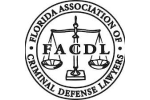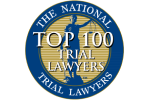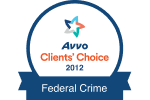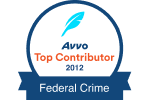to Save Yours
Drug Crimes
Experienced Hillsborough County Criminal Defense Lawyer Defending Clients Facing Narcotics Charges
What comes to mind when you hear the word “drugs”? Often, drugs like marijuana, cocaine, heroin, methamphetamine, fentanyl, and prescription pills are what we think of when considering the substances involved in drug crime. If you or someone you know has been charged with a drug-related offense, the Mayberry Law Firm is here to help. Our Tampa drug crimes lawyer knows what these offenses carry, which defenses are most likely to succeed, and how to reduce the damage that a controlled substance arrest can have on the rest of your life.
Florida’s Controlled Substances Law
Florida Statute 893.02 defines controlled substances as any listed substance in Schedules I-V of Florida Statute 893.03. The schedules divide the substances into categories based on the legitimate usefulness of the substance and its potential for abuse.
Schedule I substances include those that have a very high potential for abuse and have no accepted medical use. Some of the drugs classified as Schedule I include heroin, mescaline, peyote, and methaqualone. The crimes involving Schedule I substances are generally considered to be more serious than those involving drugs in lesser schedules due to the DEA’s viewing of such substances as having no legitimate purpose.
On the opposite end of the spectrum are Schedule V drugs. Schedule V substances have a very low risk of abuse and have some currently accepted medical use in the United States. A Schedule V drug is often a compound of a small amount of a controlled substance paired with something that is not a controlled substance. Between Schedule I and V substances are schedules of varying significance.
Regardless of the controlled substance’s schedule, a person who illegally possesses, sells, distributes, manufactures, or traffics a controlled substance can be charged with a narcotics-related crime. Depending on the conduct alleged, the penalty involved may increase in severity.
For example, a simple possession misdemeanor case can lead to a maximum punishment of 11 months, 29 days in jail. For more serious cases involving trafficking, for example, the punishment involved can lead to a minimum mandatory prison term of 25 years. The type of narcotic involved can also affect the sentencing potential; for example, trafficking heroin or methamphetamine can carry a harsher sentence than trafficking marijuana.
Allegations of these kinds of crimes are very serious, and every effort available should be made to defend an allegation. A Hillsborough County drug charge can be life-altering; it will involve you in a criminal court penalty, but it can also act to suspend your driver’s license for a period of time if adjudicated guilty of the offense.
As an experienced Tampa drug crime attorney, Jason Mayberry can help you navigate your way through this maze of unfamiliar territory. Whether you need help with an addiction problem or just got caught for a recreational amount of marijuana, we can position you to get the result you need.
Common Drug Crimes in Florida
There are many controlled substance crimes in Florida, ranging from simple possession to trafficking in mass quantities. Some of the more common crimes are listed below.
Drug Possession – Defined as having an illegal substance on your person or within your dominion and control, typically for personal use. This can be charged as a misdemeanor or a felony.
Possession with the Intent to Sell – Defined as having an illegal substance in your possession in addition to a measuring scale and/or having the substance packaged individually for distribution. Possession with the intent to sell is considered a felony.
Sale of Drugs – Defined as selling a controlled substance to another. The penalties involved will depend on the substance, the amount sold, and the location of the sale.
Trafficking – Defined as the sale, purchase, manufacture, delivery, or introduction into Florida of a large amount of drugs. Trafficking is a felony charge often involving minimum mandatory prison terms.
However, these crimes are not set in stone. For example, in borderline cases, a skilled Tampa drug defense lawyer may be able to convince prosecutors to drop more serious felony drug charges and replace them with a misdemeanor simple possession charge.
Tampa Drug Crimes Punishments
Under the right circumstances, an experienced drug lawyer can negotiate a pretrial diversion sentence for his client called “drug court” or possibly an alternative program called DETRR; a less restrictive diversionary court. Successful completion of either of these special courts results in criminal charges being dropped against the defendant and, in some cases, eligibility for immediate expungement.
If you are not eligible for drug court diversion or the DETRR program, then your case will go through the traditional, punishment-based criminal system. If your case is resolved with a plea, potential penalties could include the following:
- Probation
- Imprisonment
- Fines
- Public service hours
- Drug rehabilitation
If you are found guilty, you will also face the collateral penalty of a suspended license and convicted felon status.
Speak with a Tampa Drug Crimes Lawyer About Your Case Today
If you’ve been charged with a narcotics crime, you need an experienced Hillsborough County drug crimes attorney by your side as soon as possible. The Mayberry Law Firm has handled all types of crimes, ranging from Federal cocaine smuggling cases on semi submarines off the Central American coast to simple marijuana possession cases where we have helped our clients avoid jail time and driver’s license suspensions. We are familiar with both the direct and collateral consequences involved in narcotics cases and are ready to help in any way we can. Call the Mayberry Law Firm at (813) 444-7435 to schedule a free consultation today.














